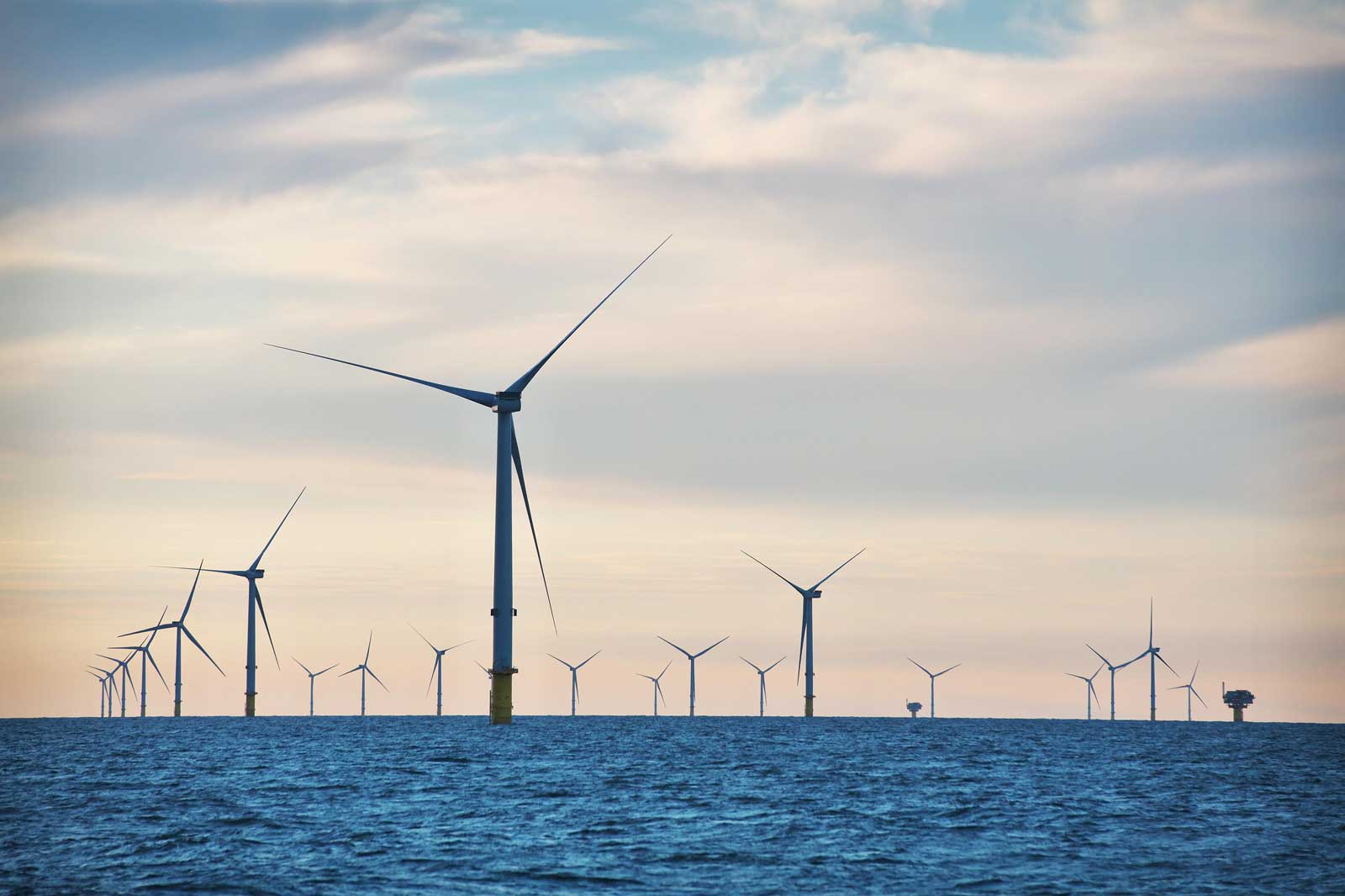
RWE and DNV to validate implications of long-distance “wake effects” from large offshore wind clusters
RWE and DNV have now agreed on a scope to conduct a large study assessing the impact of far wakes in offshore wind. The scope of the study asks DNV to validate the effects that RWE experts have identified. RWE models predict that large clusters of offshore wind farms could have far-reaching wind-shadowing effects, impacting wind yield of future offshore farms.
Results of the RWE modelling now suggested for validation
RWE reviews its methodology and approaches to wind energy yield modelling on an ongoing basis. Based on this the company has developed a good understanding of these long-distance “cluster wake effects”. The preliminary model from RWE forecasts that these can have an impact up to 200 kilometres or more and cause the energy yield in the wake areas to be reduced – in certain cases by over 10 percent. This could have possible implications on future offshore development projects in Europe, for example in the German North Sea.
Initial findings of the DNV review expected in April
RWE experts will now hand off their data to the independent energy expert and assurance provider DNV to validate the initial modeling results. DNV will independently carry out data analysis on RWE data and perform CFD modelling to review the RWE findings. The study aims to provide first results of DNV in April to reflect on the potential losses.
Study results could impact short term auctions
While the buildout of large offshore wind clusters will still take many years to materialise, the effects would already influence the economics of projects that are to be auctioned by governments in the near future.
Information Source: Read More “
Energy Monitors , Electric Power , Natural Gas , Oil , Climate , Renewable , Wind , Transition , LPG , Solar , Electric , Biomass , Sustainability , Oil Price , Electric Vehicles,

